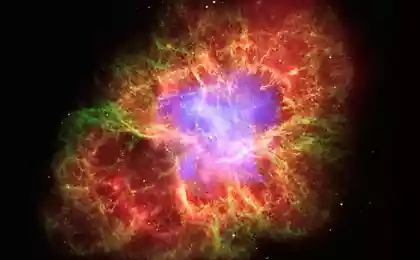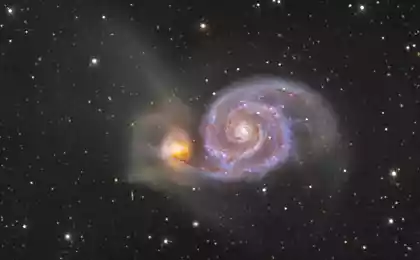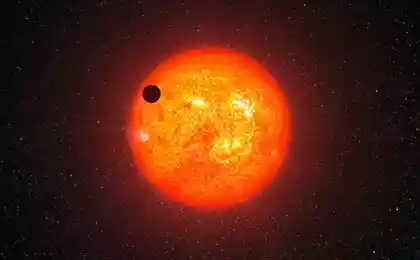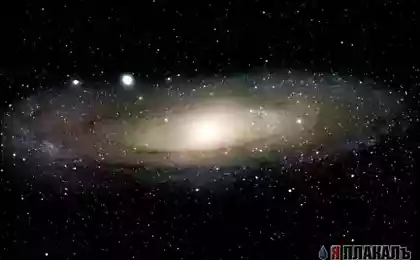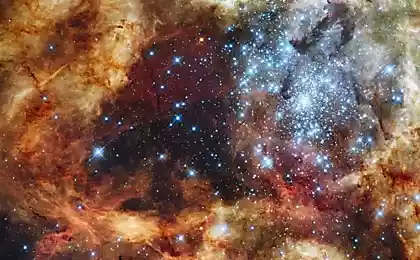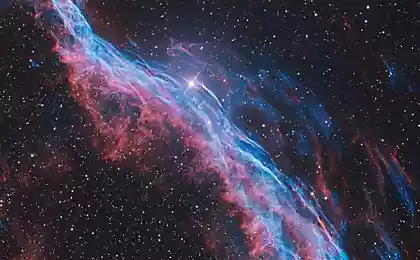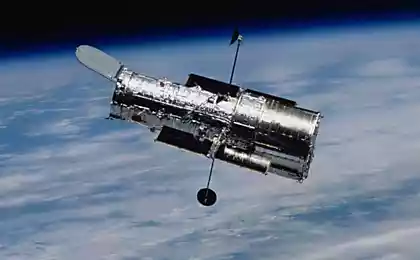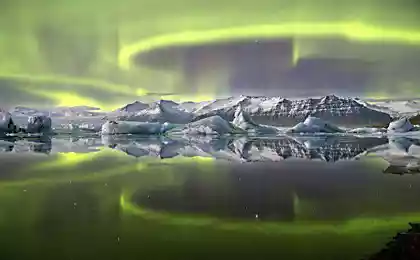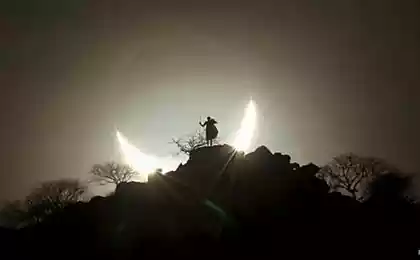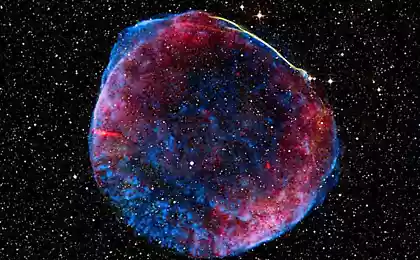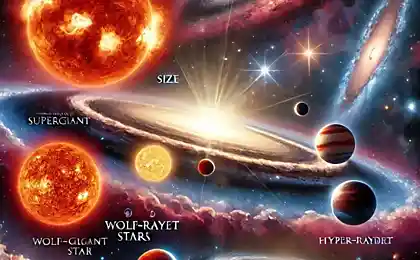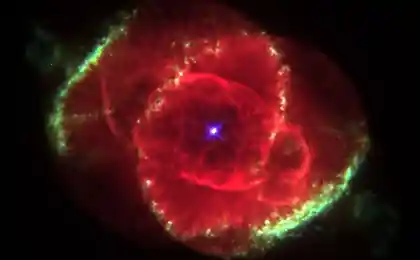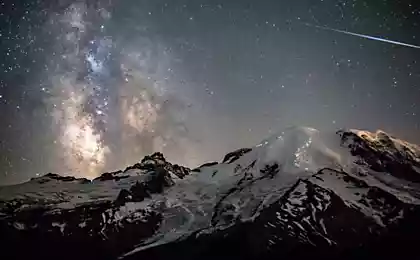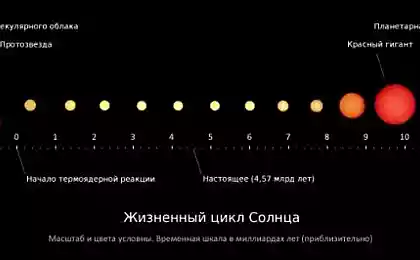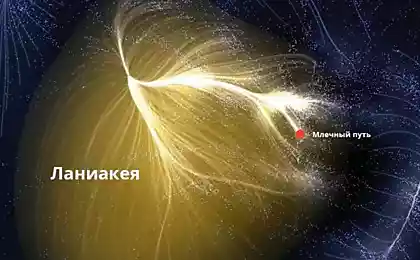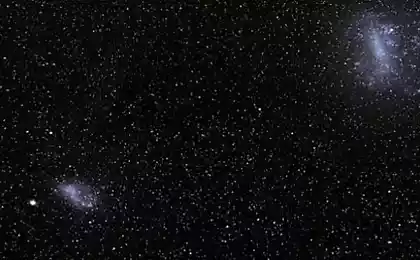1110
Discovered the largest known stars

The largest ever discovered stars may give scientists a better understanding of how massive dying stars spread the matter in the universe. Star W26, located in a large cluster Westerlund 1 16 000 light-years away, almost 1500 times larger than the Sun, making it the largest of all known stars. Red supergiant star nearing the end of its life cycle and eventually turn into a supernova.
Stars with masses ten times more solar live very short and dramatic life than their less massive "family." The life cycle of some of the most massive stars only a few million years before they will not exhaust their nuclear fuel and turn into a supernova. At the end of the life of such stars become very unstable and emit a significant amount of matter from its outer shell.
However, the size - is not the only remarkable feature stars W26. Colossal star is surrounded by a large, glowing cloud of hydrogen gas. This is the first detection of "ionized nebula" around the red supergiant that gives scientists new data for the study of the stars reset the outer shell into interstellar space.
W26 is too cold to make the light surrounding gas. Astronomers speculate that the source of ionizing radiation can be blue stars, also included in the cluster. Or perhaps, more dull, but much hotter stars forming a binary system with W26. New photos from the supergiant and cluster Westerlund 1 show that the nebula glowing nebula has a green color. Despite its decent size, the cluster as a whole looks dull because of interstellar gas and dust.
Source: habrahabr.ru/post/217569/
